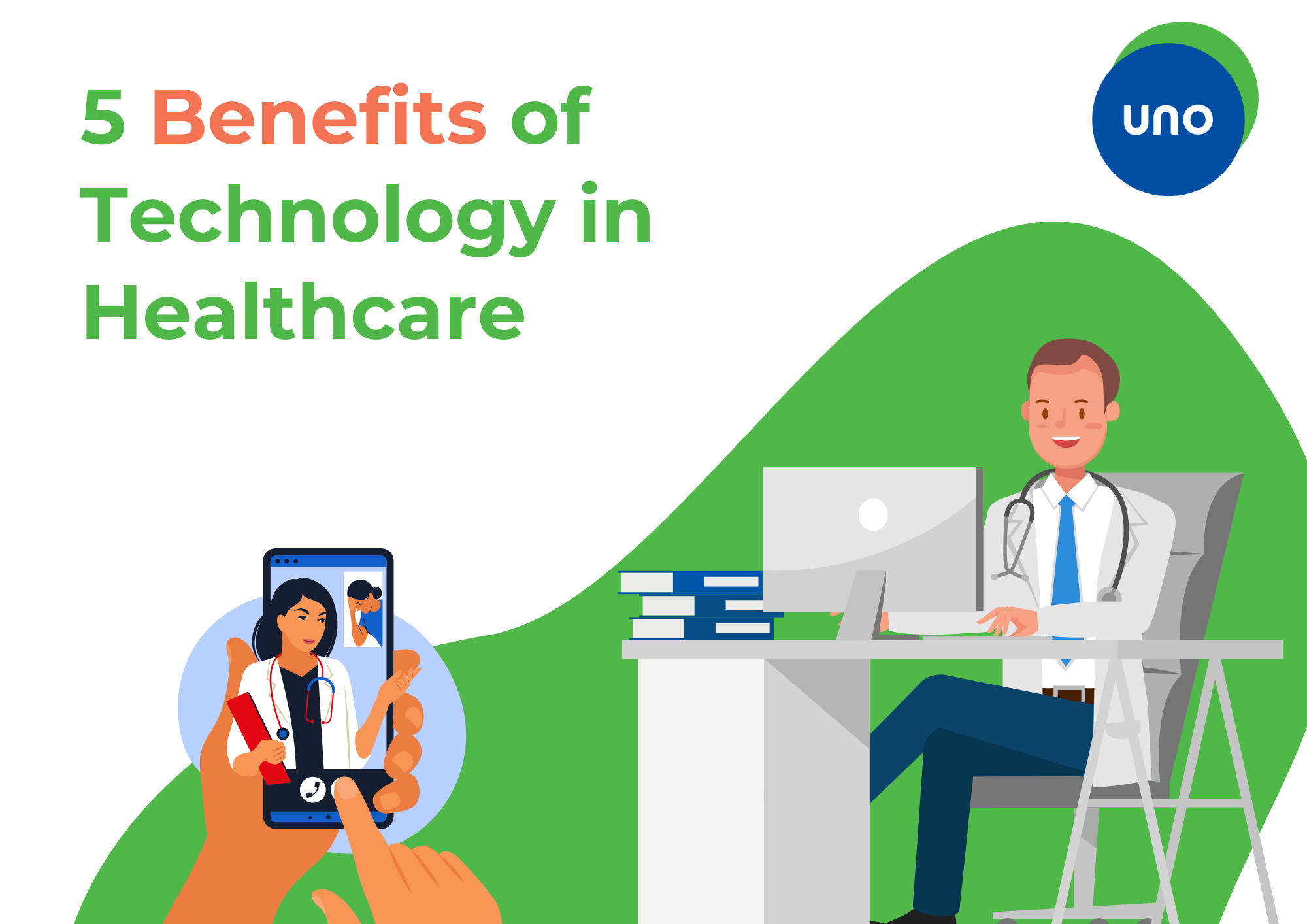5 benefits of technology in healthcare
Many hail the wave of technological progress as Mankind’s greatest gift to himself. Indeed, the pervasive nature of technology has permeated every stratum of our society, and the healthcare field is no exception. The advent of technology has revolutionized the healthcare industry in multifarious ways, and this blog will discuss various aspects of how this modernizing wave has benefitted the healthcare field.
Here are the 5 key benefits of leveraging technology in healthcare:
Easy access to patient medical records
Reduction in medical errors
Greater patient care
Improved patient education
Reduction in cost
1. Easy access to patient medical records
The collection of patients’ data is one of the most paramount aspects in the healthcare field. Medical data is essential for doctors to analyze the patient’s situation and illness and then to find a possible cure for it. In the past, patient records used to create large amounts of paperwork because everything was on paper and pen. Accessing past records was troublesome. However, with the advent of digitalisation, the medical information of patients can be keyed into a cloud-based, digitized system. This has provided extraordinary ease for specialists, patients, and medical billers to access with a click of a button, from anywhere at anytime.
This system is called Electronic Medical Records (EMRs), or Electronic Health Records (EHRs). It is a collection of patient and population health information electronically stored in a digital format. Sameer Bhargava, who serves as the chief information officer and chief technology officer at Caregiver, Inc., emphasized the much-needed efficiencies EHRs had provided them with. Across an eight-month period, his team migrated eight million records from paper to an EHR system. “Moving to electronic records elevates our care ecosystem into a cohesive process that can provide a better network of services,” Bhargava says. Therefore, technology has simplified the collection of medical records, enabling providers to mine out patients’ information in a matter of minutes.
2. Reduction in medical errors
Medical errors are an increasing public concern as they are repeated constantly and are inevitable parts of the results of human performance. According to official Starfield, and the American Institute of Medicine (IOM), medical errors in U.S. hospitals and healthcare institutions are the third leading cause of death and nearly 98,000 annual deaths occur due to medical errors in hospitals.
Fortunately, technology has facilitated the development of systems that are proven to reduce medical errors and save more lives. The clinical Decision Support (CDS) system provides the health care professional with medical information and patient-specific information. This information is rationally filtered and presented to the healthcare professional at appropriate times, intending to enhance the decision-making of the healthcare provider. It is capable of providing evidence-based standards and guidance; procedures and protocols; rules and recommendations for care, etc. A study done by RA. Miller and colleagues showed that the CDS system reduces serious medication errors by 55% and total medication errors by 83%, highlighting the transcendent power of such a system to aid healthcare professionals in their diagnosis.
3. Greater patient care
The use of technology can increase patient engagement, providing insight to help create hyper-targeted, personalized health and wellness plans. Devices in the form of wearables like fitness bands and other wirelessly connected devices like Fitbits can monitor one’s blood pressure and Electrocardiograph (ECG), giving patients and specialists access to personalized information. These devices can depict calorie count, exercise checks, appointments, blood pressure variations, etc.
Specialists can keep track of patients’ health more efficaciously, such as their adherence to treatment plans, etc. This is especially pertinent for elderly patients and those living alone, where their family members or concerned healthcare providers will be promptly alerted if any abnormality is detected. As such, such technological gadgets ensure that patients enjoy superlative care, enhancing the healthcare experience and quality for all.
4. Improved patient education
Patient education takes on an imperative role in healthcare, and specialists are embracing technologies that can help better inform and engage patients. According to the results of a recent survey of 200 U.S. physicians conducted by PatientPoint and Digital Health Coalition, more than 75% of physicians believe that leveraging patient education and engagement technology can help improve the patient experience. 95% of respondents also reported that they were currently using engagement technology tools to educate and engage with patients.
Technology has provided softwares and applications that present customized health education information to patients based on their specific needs and conditions. For example, the Patient Electronic Portal is a secure online application that provides patients access to their personal health information and 2-way electronic communication with their care provider using a computer or a mobile device. A study has found that this application has increased patients’ compliance to preventive medical precautions, their medical adherence, and self-awareness and management of their diseases.
5. Reduction in costs
Medical errors in U.S hospitals and clinics cost $USD 20 Billion a year. The reduction in medical errors directly reduces costs for both the practitioners and patients. By leveraging technology to reduce diagnosis and prescription errors
While the shift from paper to Medical EMR in clinics can reduce the costs of outpatient care by 3 percent. This is estimated to be $5.14 in savings per patient each month. A cloud EMR significantly reduces the usage of paper in practice and cost in various other errors.
Conclusion
In the scheme of things, technology has indeed revolutionized the healthcare industry, with many systems and softwares available that you can consider utilising to streamline your logistics and workflow, and at the same time provide superlative care to your patients.
We do hope you find this article informative and useful for your practice. If you are looking to elevate your medical practices to the next level, UNO Clinic Management System is always ready to assist you.
